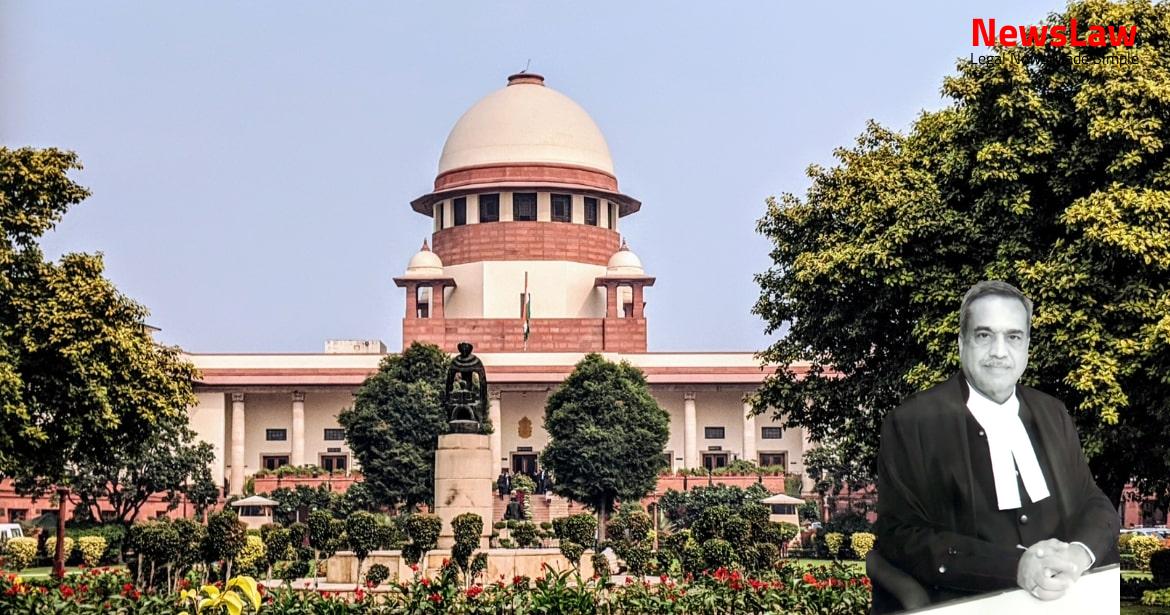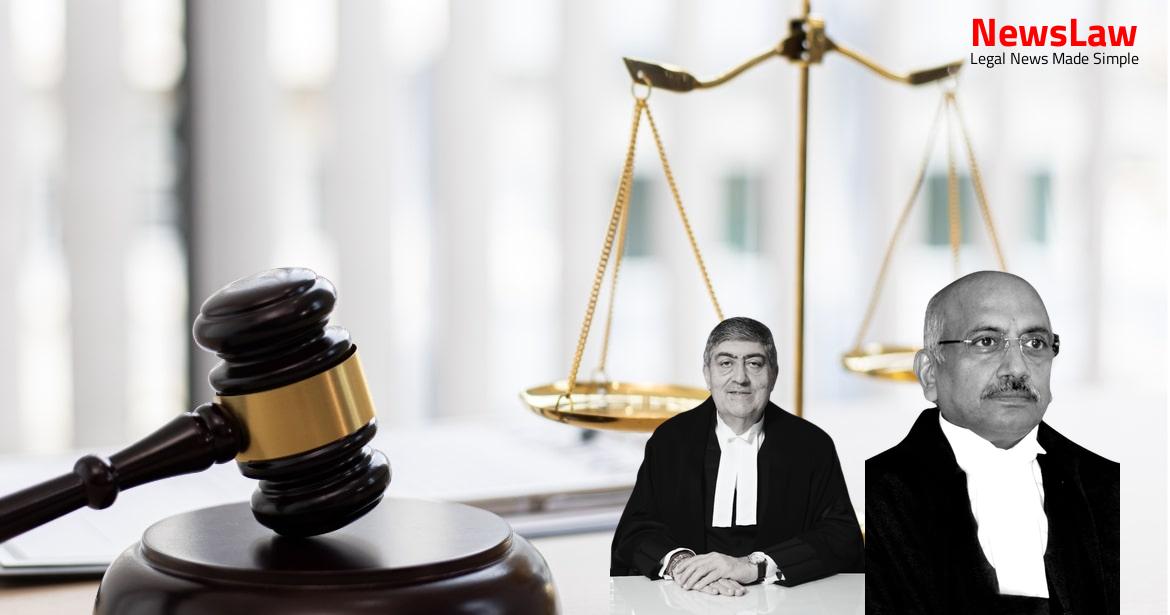Charles Vaughn obtained a lease of the Suit Land ( hereinafter, ‘1924 Lease Deed’ ) from the erstwhile colonial rulers through the Secretary of State for India in Council for thirty years on payment of rent as agreed between the parties. (c) The lessee agrees that he will submit the plan of any building which he wish to erect or of any existing building which he has to modify to the Deputy Commissioner of Nainital for approval before starting building operations, that he will complete the building within two years of the receipt of approval and that he will keep every building erected by him and also the Government buildings standing on the said plot of land and shown on the plan annexed in good and substantial repair and condition both externally and internally. (h) The lessee further agrees that if he dies heirless before the expiry of lease as also on the expiry of lease, the land demise herebyd and all buildings standing on the land shall revert to the lesser without compensation.
(l) If there be any breach by the lessee of any covenant herein before contained the Deputy Commissioner of Nainital may, not withstanding the waiver of any previous breach by the lessee giving the Deputy Commissioner of Nainital the right of re-entry, enter upon any part of whole of the land hereby demised or of the buildings standing on the said plot of land and thereupon the said land and buildings shall remain to the use of and be vested in the Secretary of State and the lessee shall not been titled to any compensation for any building erected by him or for any improvements made by him upon the land demised and this demise shall absolutely determine. X-X-X-X” (Emphasis Applied) After the execution of the 1924 Lease Deed which was registered on 22.08.1925, it appears that revenue entries were made in favour of one Manohar Lal, who is said to have purchased the Suit Land through a sale deed dated 17.11.1947 ( hereinafter, ‘Sale Deed’ ).
Thereafter, it is to be noted that revenue records continued to depict the name of the predecessor of the Respondents as ‘Occupancy Tenant’ on the strength of the said Sale Deed.
The State’s appeal against the said order before the District Judge was also dismissed on the grounds of being time-barred and the suit being non-maintainable. The appeal must, therefore be dismissed.” (Emphasis Applied)
Also Read: https://newslaw.in/supreme-court/discrepancy-in-date-of-birth-courts-legal-analysis/
Hence, the suit which was instated in 1967 was never adjudicated on merits per se in respect of the claim of tenancy by the Respondents, but on the technical grounds of the bar contained in the UP Public Premises (Eviction of Unauthorised Occupants) Act, 1972 as well as on the ground that the appeal against the Prescribed Authority’s order was time barred. This order was later confirmed by another order dated 30.08.1978 passed by the concerned SDM directing the Tehsildar, Haldwani to mutate the Suit Land in favour of Respondents in revenue records. 07.1976 Appeal against the order dated 25.03.1975 got dismissed as non-maintainable as well as time-barred.
The subject matter of these appeals arose from an order dated 31.12.1981 passed by the District Collector, Nainital ( hereinafter, ‘Expunction Order’ ) during the pendency of the revision proceedings before the Board of Revenue in the abovementioned mutation proceedings. Against the Expunction Order, the Respondents preferred a revision before the Commissioner, Kumaon who passed an interim order dated 20.01.1982 directing that no revenue entries should be deleted in light of the fact that the matter was pending before the Board of Revenue in mutation proceedings. Afterwards, on 16.08.1983, the Commissioner, Kumaon dismissed the revision pending against the Expunction Order noting that the same was not maintainable in view of the fact that no provision provided for revision of an order passed under the Government Grants Act of 1895 as applicable to the then State of Uttar Pradesh vide amendment made in 1960.
(3) Certain leases made by or on behalf of the Government to take effect according to their tenor.-All provisions, restrictions, conditions and limitations contained in any such creation, conferment or grant referred to in Section 2, shall be valid and take effect according to their tenor; any decree or direction of a court of law or any rule of law, statute or enactment of the legislature, to the contrary notwithstanding: Provided that nothing in this section shall prevent, or be deemed ever to have prevented, the effect of any enactment relating to the acquisition of property, land reforms or the imposition of ceiling on agricultural lands.” Aggrieved by the said order dated 16.08.1983 of the Commissioner, the Respondents filed a revision before the Board of Revenue, which was heard by a Single Member who vide its order dated 22.01.1993 ( hereinafter, ‘Single Member’s Order’ ) set aside the Expunction Order. The Three Member Bench in turn vide its order dated 20.12.1996 ( hereinafter, ‘Three Member Bench’s Order’ ) held that Single Member’s Order was without any jurisdiction as no power for revision existed under the land revenue laws and also noted that the Expunction Order was passed under the Government Grants Act of 1895. In turn, the said bench on 18.12.1997 is said to have passed an order stating that Three Member Bench’s Order did not alter the Single Member’s Order and directed that the review should be filed before the Single Member only. Upon dismissal of the suit, the Respondents instead filed a revision petition before the Additional Chief Revenue Commissioner, who vide his order dated 22.07.2002, declared Restrain Orders as void and illegal.
Ultimately all three writ petitions were heard together by the High Court, which vide the impugned judgement dated 07.10.2005 in Civil Appeal
No 4985 of 2009 decided the matter in favour of Respondents. Interestingly after the High Court passed the impugned judgement dated 07.10.2005, the pending review before the revenue court of Additional Chief Revenue Commissioner, Nainital was decided in favour of the Appellants vide an order dated 21.10.2005 wherein the authority set aside the Single Member’s Order and directed that in view of the Three Member Bench’s Order, the Expunction Order must be complied with. It also specifically noted that Expunction Order stood set aside in view of the Single Member’s Order and that order dated 21.10.2005 was passed without any jurisdiction by the Additional Chief Revenue Commissioner as the High Court already decided the matter vide judgment dated 07.10.2005.
12.1997 The said bench passed an order stating that Three Member Bench’s Order did not alter the Single Member’s Order and directed that the review should be filed before the Single Member only ( Pursuant to this review filed by State ). 07.2002 Additional Chief Revenue Commissioner set aside the Restrain Orders in revision proceedings [ Third Writ Petition against this order by State ]. The Appellants filed an appeal against the order dated 20.10.1984, which was dismissed by the First Appellate Court on 16.06.1986 on identical reasoning as given by the Trial Court. The Appellants proceeded to file the second appeal before the High Court against the First Appellate Court’s order, and the same was dismissed vide the impugned judgment dated 05.11.2004 passed in Civil Appeal No 4988 of 2009.
The commencement point for these appeals began when the state authorities issued a notification dated 13.04.1982 under Section 4 of the Land Acquisition Act of 1894 for acquiring land measuring 70 bigha 08 biswa for the construction of Model Industrial Training Institute. To summarise these proceedings – 1982 Land Acquisition Proceedings Date Proceedings 13.04.1982 Notification under Section 4 of the Land Acquisition Act, 1894 issued. Respondents have initiated these contempt proceedings for violation of order dated 23.02.2007 passed by this Court directing parties to maintain the status quo. John Vaughn for the limited period of thirty years under the Government Grant Act of 1895 and as per the conditions stipulated in the 1924 Lease Deed, it was necessary to obtain a prior written approval or approval of the Deputy Commissioner, Nainital before the lease rights could be transferred in favour of the Respondents. Hence in effect, no tenancy rights were ever created in favour of Respondents, nor could they claim lawful tenancy by evoking the doctrine of holding over; d) It was also argued that 1967 Eviction Suit and 1978 Mutation Proceedings never decided the issue of ownership or tenancy status. Ravel, learned senior counsel for the Respondents initiated his arguments on the first day of hearing by submitting that the Respondents claimed ownership on two independent grounds, firstly through the Sale Deed and secondly, on the strength of status accorded under the applicable tenancy laws. Ravel’s arguments which are as follows – a) It has been submitted that there was no mandatory requirement of prior approval from the Deputy Commissioner at time of the execution of the Sale Deed. In other words, they contend that the Sale Deed must be treated as valid until there is an explicit refusal to grant consent for transfer of rights by the Deputy Commissioner. The relevant portion of the said notification is as follows – “X-X-X-X 130- Every person belonging to any of the following classes shall be called a bhumidhar and shall have all the rights and be subject to all the liabilities conferred or imposed upon bhumidhars by or under this Act, namely – (a) every person who on the date immediately preceding the appointed day held land as- (i) an occupancy tenant (ii) a hereditary tenant, or (iii) a lessee to whom the provisions of the Government Grants Act, 1895 apply Processing the rights to transfer the holding by sale (b) every person who acquires the rights of a bhumidhar under or in accordance with the provisions of this Act.” (iii) a grantee at favourable rate of rent (iv) a lessee holding a lease under the provisions of the Government Grants Act, 1895 and having rights of hereditary tenant under the terms of the lease, but not possessing the rights to transfer the holding by sale, (b) every person who is admitted as sirdar of vacant land under the provisions of this Act, (c) a tenant in any of the 42 Buxari villages specified in the Annexure, appended hereto, who was recorded in Class X( l ) in the Khatauni of the previous agricultural year, and (d) every person who, in any other manner, acquires the rights of a sirdar under or in accordance with the provisions of this Act. Therefore to sum up, it was submitted that the entire chronological sequence as narrated above bears testimony to the logical progression of rights of the predecessor of the Respondents culminating into title as ‘Bhumidhar’ as per the object of the U.P. It was also submitted that Appellants have deliberately failed to take any steps to correct the abovementioned revenue entries, which carry the presumption to be correct in law, despite suggestions to the contrary by the adjudication authorities in multiple proceedings, including in the 1978 Mutation Proceedings. Reliance was placed on the decision rendered in State of Uttar Pradesh v Zahoor Ahmad to argue that Section 116 of the Transfer of Property Act of 1882 would be applicable notwithstanding the 1960 State amendment to the Government Grant Act of 1895 and the fact that predecessor of Respondents deposited enhanced rent as per the 1924 Lease Deed which was never rejected by the Appellants. If the 1924 Lease Deed stood determined after the initial lease period of thirty years, whether the Respondents are entitled to seek protection of holding over of the lease under Section 116 of the Transfer of Property Act of 1882? Regardless of the fact that the lease deed is deemed to have subsisted, was it possible for predecessor of Respondents to be accorded the status of ‘Occupancy Tenant’ under the 1939 Act, which resulted in them being subsequently accorded the status of ‘Sirdar’ under the Zamindari Notification? John Vaughan on 20.6.1924 who sold the land to Sri Manohar Lal vide sale deed dated 117.11.194 7 and thereafter the land was recorded in the name of Sri Manohar Lal and on his death his successor Sri Ravi Kumar and Virendra Kumar. John Vaughan with the permission of the Commissioner Kumaon and he was in possession in July 1969 on the land in suit. Nevertheless, even if the clarification on behalf of Respondents which is taken for the first time at this stage is allowed, we must note that the tenor of the Sale Deed completely contradicts the said modified stance. Rs.20000 by cheque 16124 on Imperial Bank Nainital dated the 17 November 1947 Rs.5000/- five thousand by cheque No 16125 on the same Bank dated the 10 December 1947 which cheques have been handed over to the vendor before the Sub Registrar to day and the balance of Rs.5000/- five thousand to be paid by the vendee when the garages are vacated by the present tenants whom the vendor undertakes to vacate by the end of this month set forth above is acknowledged in full, the vendor for himself, his executors, administrators and assigns doth hereby sell, transfer, convey and assign unto the vendee the aforesaid plot of land in its entirety containing by admeasurements 28.165 acres of land more fully described at the foot of THESE PRESENTS with all residential and other buildings therein standing and the boundary wall, tank, garages and out houses together with all trees, plants, shrubs, crops and all agricultural implements and cattle as per list handed over to the vendee and all surface rights, lights, water & other rights easements to have to hold and to enjoy peaceably and for ever without any let or hindrance from the vendor or any one claiming through him or independently.
The Vendor covenants with the vendee to compensate and save from harm the vendee his heirs, executors and assigns against any loss or damage that he might suffer due to any defect in the title of the vendor to sell the premises hereby transferred or to any part thereof…….” (Emphasis Applied) These recitals of the Sale Deed highlight that the relationship between Mr. Additionally, despite these findings being a serious lacuna for us to reach a conclusive decision, the Appellants have raised no serious objection to the modified stand taken by the Respondents wherein they stated that the Sale Deed was in respect of leasehold rights only. John Vaughan Transferred the property in suit to the defendant no.1 and put him in possession of the same without the written approval of the Deputy Commissioner Nainital, an application was no doubt made to and approved by the then superintendent of Tarai and Bhabar Govt. 1 deposited rent at the enhanced rates and applied for a renewal of the lease to which he was not entitled. 1 whose possession continues to be wrongful from its very inception and the plaintiff is entitled to recover the possession of the premises in suit and also damages. Coming back to the aspect of prior approval, the Respondents drew our attention towards the vernacular copy of the order dated 07.08.1980 passed by the Commissioner, Kumaon, in the mutation proceedings to support the plea of grant of valid approval. Deputy Commissioner was granted only on 06.12.1948 which is more than a year later than the Sale Deed. The subordinate courts as well as the High Court have merely relied on the order dated 07.08.1980 passed by the Commissioner, Kumaon to come to a sweeping conclusion that a valid approval existed in favor of the predecessor of the Respondents despite glaring contradictions which were on the face of the record.
[(1986) 1 SCC 264], considering the distinction between “special permission” and “general permission”, “previous approval” or “prior approval” in para 63 held that: “We are conscious that the word ‘prior’ or ‘previous’ may be implied if the context or the object and design of the legislation demands it, we find no such compelling circumstances justifying reading any such implication into Section 29(1) of the Act.” Ordinarily, the difference between approval and permission is that in the first case the action holds good until it is disapproved, while in the other case it does not become effective until permission is obtained. Nevertheless, once the approval is given, all the previous acts done or actions taken in anticipation of the approval get validated and the publications made under the Act thereby become valid.” (Emphasis Applied) In this respect, we would like to hold that reliance on the same is misdirected for the reason that the interpretation of a contractual condition as contained in the present lease deed stands on a different footing than the interpretation of statutory provisions which were the subject matter in the case of U.P. Section 3 of the Government Grants Act declares the unfettered discretion of the Government to impose such conditions and limitations as it thinks fit, no matter what the general law of the land be.
Case Title: THE STATE OF UTTARAKHAND Vs. RAVI KUMAR (D) THR. LRS . (2023 INSC 550)
Case Number: C.A. No.-004983-004983 / 2009



